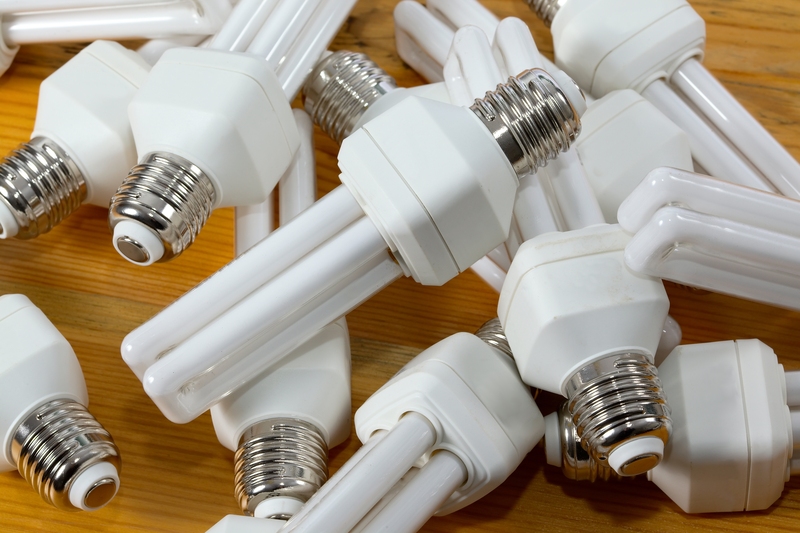Master the Art of Home Recycling with These Vital Tips
Recycling at home has never been more crucial. As the volume of household waste increases each year, adopting effective home recycling habits is vital for the environment and for building a more sustainable future. If you're looking to elevate your recycling skills beyond just sorting bottles and cans, these expertly curated tips will empower you to master home recycling and make a meaningful impact.
Why Is Home Recycling Important?
Every day, households generate significant amounts of waste--much of which ends up in landfills, contributing to pollution and greenhouse gas emissions. Recycling at home offers several benefits:
- Reduces the volume of landfill waste
- Saves energy and natural resources
- Decreases pollution and environmental harm
- Encourages a culture of environmental responsibility
Home recycling isn't just about following municipal rules; it's about changing habits and setting an example for your community. Making recycling a routine starts right at home, and these vital techniques will help you do it efficiently.

Getting Started: Build a Home Recycling System
Evaluate Your Household Waste
Before creating a recycling system at home, audit your weekly trash. Sort items into recyclables, landfill, and compostable categories. Understanding your waste patterns will help you decide what bins and systems you need.
Choose the Right Bins
- Categorize bins: Clearly label bins for plastics, glass, metals, paper, electronics, and organic waste.
- Label with visuals: Especially if you have children, use pictures on bins to make sorting easy for everyone.
- Location matters: Keep bins in high-traffic areas like the kitchen, bathroom, and home office.
Understand Local Recycling Guidelines
Every city or town has its own regulations about what can and can't be recycled. Check your municipality's website to learn:
- Accepted materials
- Rules for cleaning recyclables
- Pick-up or drop-off schedules
Essential Tips to Master Home Recycling
1. Rinse and Prepare Your Recyclables
Dirty containers can contaminate an entire batch of recyclables, sending them to landfills instead. Always rinse food and beverage containers before recycling. Remove plastic lids or caps, as many facilities process them separately.
2. Know What NOT to Recycle
Wish-cycling (putting non-recyclables in the bin, hoping they'll be recycled) is one of the biggest setbacks for recycling plants. Commonly mistaken non-recyclables include:
- Plastic bags (unless accepted separately)
- Pizza boxes with greasy residue
- Styrofoam
- Broken glass
- Ceramics and mirrors
- Disposable coffee cups (if lined with plastic)
Check your local facility's rules before recycling questionable items.
3. Flatten Boxes and Containers
Save space in your recycling bin by flattening cardboard boxes, cartons, and other bulky containers. This small step makes transport more efficient and helps recycling centers process materials more easily.
4. Go Beyond the Kitchen
Kitchen waste is just the tip of the iceberg. Extend your efforts by placing recycling bins in every room. Consider what you use and discard in:
- The bathroom: Toilet paper rolls, shampoo bottles, and cardboard boxes.
- The home office: Paper, old electronics, printer cartridges.
- Bedrooms: Old clothes, magazines, packaging.
5. Compost Organic Waste
Organic materials like fruit and vegetable scraps, coffee grounds, and eggshells are perfect for composting. Setting up a compost bin in your backyard or using a countertop composter for apartments helps reduce landfill waste while creating nutrient-rich soil for your garden.
- Compostable: Fruit peels, veggie scraps, leaves, coffee grounds.
- Not Compostable: Dairy, meat scraps, oily food, pet waste.
Learn more about local green waste collection programs for proper disposal.
6. Recycle E-Waste Responsibly
Old computers, phones, and batteries shouldn't go in regular recycling bins. E-waste recycling protects the environment from harmful chemicals and recovers valuable materials. Research local drop-off centers or annual electronics recycling events in your area.
7. Reuse Before Recycling
The best recycling is not generating waste at all. Think creatively about reusing items to extend their life:
- Repurpose glass jars for storage
- Turn old t-shirts into cleaning rags
- Reuse boxes for organizing supplies
Avoid single-use products in favor of reusable alternatives whenever possible.
8. Educate and Involve Your Family
Successful home recycling is a team effort. Teach children and roommates about what goes where--make it part of your daily routine. Set up friendly reminders or posters above bins and, if possible, establish a reward system for consistent participation.
9. Shop with Recycling in Mind
What you bring home eventually becomes something to recycle or discard. Choose products with minimal, recyclable packaging, and buy in bulk to reduce the amount of packaging waste. Support brands that use recycled materials and encourage responsible product stewardship.
10. Stay Updated with Recycling Innovations
Recycling technologies and guidelines change over time. Regularly check updates from your local recycling provider and stay informed about new programs, such as hard-to-recycle item collection or innovative material processing.
Simplifying the Recycling Process
Create a Recycling Station
Set up a designated area in your garage, utility room, or outdoor space for collecting and sorting recyclable items. Use clear labels and color-coded bins to speed up the sorting process and minimize mistakes.
Maintain Cleanliness
A clean recycling area prevents odors and pest problems. Rinse containers before discarding, wipe spills immediately, and empty bins regularly to keep your recycling station tidy and inviting.
Set Reminders and Schedules
Consistency is key. Mark recycling pick-up days on your calendar, set phone reminders, or create a family recycling schedule to ensure materials go out on time and bins aren't overflowing.
Common Recycling Mistakes to Avoid
- Plastic bags in curbside bins: They clog sorting machinery. Recycle them at grocery store collection points.
- Throwing in unclean items: Contaminants can ruin the rest of a recycling batch.
- Mixing non-recyclables with recyclables: Double-check what's accepted.
- Forgetting to check for recycling numbers: Not all plastics are created equal--look for #1 and #2 plastic codes for the most widely recycled types.
The Environmental Benefits of Mastering Home Recycling
When you master home recycling, you do more than just reduce your household waste. You:
- Conserve raw materials, helping protect forests and wildlife
- Save energy compared to making new products from raw resources
- Reduce greenhouse gas emissions, combating climate change
- Promote economic opportunities by supporting recycling industries
Each act of recycling, no matter how small, contributes to a cleaner planet and healthier communities. By making these habits second nature, you set a standard for others in your neighborhood and beyond.
Advanced Tips: Take Your Home Recycling to the Next Level
Host Recycling Days with Neighbors
Organize neighborhood recycling drives for hard-to-recycle items--electronics, batteries, or bulky plastics. Pooling resources makes it easier to access specialized recycling centers and fosters a community of responsible citizens.
Track Your Progress
Record how much waste you divert from landfills every month. Celebrate milestones and use your data to identify new areas for improvement.
Advocate for Recycling Improvements
Contact your local environmental agencies to suggest expanded recycling options or improved facilities. Share your experience and stories with others to inspire greater participation at schools, workplaces, and community centers.
Conclusion: You Can Master Home Recycling!
Mastering the art of home recycling is an ongoing commitment to sustainability and environmental stewardship. By following these vital tips, you'll develop solid recycling habits, reduce your ecological footprint, and inspire others to join your journey. Remember: every recycled bottle, can, or paper helps shape a healthier planet.
Start today, involve your family, and transform your household into a model of responsible recycling!

FAQ: Home Recycling Mastery
What should I do with items that aren't accepted in my curbside bin?
Research local drop-off centers or special collection events for items like electronics, batteries, and hazardous materials. Don't put them in the general recycling--they require special handling.
How clean do my recyclables need to be?
They don't need to be spotless but should be free of food debris. A quick rinse is enough to prevent contamination.
Can all plastics be recycled?
No. Only certain types (like #1 and #2 plastics) are widely accepted. Check the number inside the recycling symbol and confirm with your local facility.
Is it better to compost or recycle paper products?
Compost paper if it's soiled (like used napkins); recycle clean, dry paper and cardboard. Both options help reduce landfill waste when applied correctly.
Resources for Further Reading
Remember: With acceptance, knowledge, and a few simple changes, you can master home recycling and become a true steward of the environment. Start your journey today!